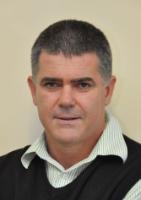
We certainly need more engineers, but not at the expense of the humanities.
The humanities give us literature, and this is where we should be learning about leadership, rather than from the latest book by a leadership guru or the CEO of a large corporation.
If we read extraordinary literature from all over the world, we will realign our understanding of leadership.
In an anthology entitled Leadership: Essential Writings by our Greatest Thinkers, edited by Elizabeth Samet, professor of English at West Point Military Academy in the US, Samet shares her belief in the role of literature in cultivating true leaders.
This teacher of future soldiers and officers cautions against the pervasive tendency to conflate leadership and crisis.
“We live in a world that romanticises crisis,” she says.
This gives rise to “the false prophets, the smooth operators, the gangsters, and the demagogues” who would have us believe that we need them to lead us through the crisis, to save us.
She quotes John Adams, American author, lawyer and the second president of the US after George Washington. He cautioned against leaders who capitalised on difficult situations to have people believe that their destiny and salvation lay in leaders’ hands.
Adams wrote that the US would not improve until its people began “to consider themselves as the fountain of power. They must be taught to reverence themselves, instead of adoring their servants, their generals, admirals, bishops and statesmen.”
The absence of self-reverence and self-leadership invites a worshipping of not only religious leaders and warmongering generals, presidents and electoral candidates, but also of so-called captains of industry and of the world’s wealthiest.
This displacement of leadership has entrenched itself as the definition; it is what we have come to admire.
We overlook the fact that it nurtures false prophets, smooth operators, and demagogues — people that writers, playwrights, and poets have warned us about since the beginning of literature.
Writers from Frantz Fanon, to Shakespeare, to Virginia Woolf, have closely observed people at all levels of society and tuned into their psyches in a way that many of us cannot. They have clearly distinguished the leaders from the misleaders, and it is time for us to do the same.
In his book Leaders and Misleaders, André van Heerden asserts that fewer than 10% of leaders demonstrate the kind of leadership that we should call “true” or “great”.
True or great leadership is underpinned by a heartfelt need, in the first instance, to develop oneself and, in so doing, to develop the wisdom, integrity, skills and capacity to help others.
Van Heerden says true or great leadership is about inspiring people to be the best they can be in mutual pursuit of a better life for all. Misleadership is underpinned by fear, lies, corruption and self-interest. It capitalises on crisis and uses this as a platform to promise all sorts of resolutions for people, that are never delivered.
Samet explains that people often confuse the crisis style of leadership with true leadership that promotes development and peace. True leadership is far more enduring than war-style leadership, yet it does not win medals or votes.
True leaders in all fields, from companies to countries, are often overlooked and regarded as softies; they are dismissed as “not the kind of tough men we need to steer us through threats of attack, wars, and economic crises”.
In an excellent piece in The New Yorker in February, entitled Shut Up And Sit Down, Joshua Rothman refers to Donald Trump’s first official campaign television advertisement: “The ad features a procession of alarming images — the San Bernardino shooters, a crowd at passport control, the flag of Syria’s Al Nusra Front — designed to communicate the idea of a country under siege.
“But the ad does more than stoke fear; it also excites, because it suggests that we’ve arrived at a moment welcoming to the emergence of a strong and electrifying leader. (Trump, a voice-over explains, will “quickly cut the head off Isis — and take their oil”.) By making the US’s moment of crisis seem as big (or “huge”) as possible, Trump makes himself seem more consequential, too.”
Rothman quotes Jacques Lacan, 20th century French psychoanalyst, psychiatrist and author, who wrote: “If a man who thinks he is a king is mad, a king who thinks he is a king is no less so.”
“A sense of perspective may be among the most critical leadership qualities,” Rothman concludes. “For better or worse, however, it’s the one we ask our leaders to hide,” he says.
We wonder why the billions spent on leadership seminars aren’t producing better leaders.
Instead of wondering, let’s try reading the literature.
First published in Business Day on Wednesday, 8 June 2016.
